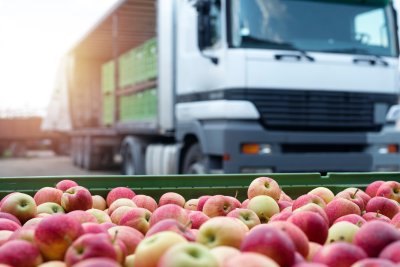
New insights on the benefits of meals on wheels and current challenges for services
New research, led by the University of Bristol, has explored the benefits of meals on wheels from a service providers’ perspective, and the challenges services face, particularly during the pandemic.
Researchers from the School for Policy Studies, in collaboration with Brown University’s School for Public Health, interviewed drivers who deliver the meals, service coordinators and meals on wheels managers from two local authorities in South West England. They found that meals on wheels drivers are often the first responders to an emergency situation and that offering the service via the local authority means that drivers are able to not only check for safety concerns and household hazards in their clients’ homes, but also work jointly with other emergency agencies (the police, the fire brigade and medical emergency departments), as well as the social services, to ensure their clients’ wellbeing.
The service is also crucial in reducing isolation and loneliness, and promoting independence and rehabilitation following hospital discharge. Meals on wheels drivers encourage clients to eat and move more, and often carry out essential chores around the house when delivering the meals, which is particularly helpful for clients with dementia or mobility difficulties. The service is also essential for reducing pressures on families, who might not be able to provide meals or support for their relatives, particularly during the pandemic.
At the same time, meals on wheels are facing several significant challenges, including outsourcing administration, funding cuts and closures. The pandemic brought an increase in service users and increased demand for drivers, reduced time spent with clients, and uncertainty about how the service will cope in future lockdowns.
‘Meals on wheels is far more than a food delivery service for people who can’t access food. It provides a multitude of benefits to clients and their families, and it is a crucial community resource to help older adults continue living independently in their homes and reduce their levels of isolation and loneliness. The continuation of this service by local authorities could save Councils thousands of pounds, compared to the costs of residential care.'
Dr Angeliki Papadaki, the study’s Principal Investigator at the School for Policy Studies in the University of Bristol
These findings suggest that it is crucial for meals on wheels to receive enhanced and ongoing support and funding from local and national governments to ensure that increased demands, particularly during the pandemic, are met. Social care policies need to acknowledge the value of meals on wheels as a central emergency service, with a crucial preventative role in maintaining the wellbeing and independence of adults who are in need of support during the pandemic and beyond.
Older People’s Food Campaign: Meals on wheels services support thousands of older people every day to stay independent in their own homes and enrich their lives.
Sustain
The Green House
244-254 Cambridge Heath Road
London E2 9DA
020 3559 6777
sustain@sustainweb.org
Sustain advocates food and agriculture policies and practices that enhance the health and welfare of people and animals, improve the working and living environment, promote equity and enrich society and culture.
© Sustain 2025
Registered charity (no. 1018643)
Data privacy & cookies
Icons by Icons8






